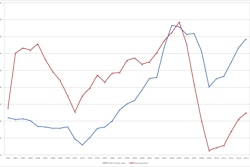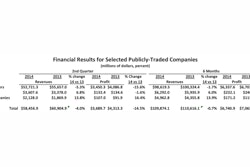The U.S. Environmental Protection Agency (EPA) has announced up to $15,000 for each of 42 student teams to pursue projects that deliver sustainable, alternative approaches to address environmental challenges as part of EPA’s People, Prosperity and the Planet (P3) program.
“Each year, the projects and designs created by the P3 teams surpass expectations,” says Lek Kadeli, Acting Assistant Administrator for EPA’s Office of Research and Development. “These students are creating sustainable solutions for our everyday needs, addressing some of the United States’ most challenging environmental issues and helping create a vibrant, growing economy.”
Past P3 teams have used their winning ideas to form small businesses and non-profit organizations. Environmental Fuel Research, a 2008 P3 winner from Drexel University, incorporated their grease waste-trap biofuel technology into a business enterprise and won a $100,000 EPA Small Business Innovation Research Phase I award this year. This woman-owned startup, headquartered in a historically underutilized business (HUB) zone to encourage economic development, has the potential to revolutionize domestic biodiesel capacity in the United States.
Since 2004, the P3 Program has provided funding to student teams in all 50 states and Puerto Rico, committing over $10 million to cutting-edge, sustainable projects designed by university students. Projects from this year’s teams include a new device for generating electricity from sunlight that could be used on exterior walls of buildings; extending the growing season for farmers by heating greenhouses with biomass; and reducing diesel emissions for vehicles while lowering costs and improving fuel economy.
Funding for the P3 projects is divided into two phases. In the first phase, student teams submit a proposal for a project, and if they are selected, they compete with other Phase I winners at the National Sustainable Design Expo in Washington, D.C. At the expo, teams compete for Phase II funding of up to $75,000. This is the 11th year for the EPA P3 Program.
Winners include student teams from the following universities:
- University of Alabama, Tuscaloosa, Ala.
- John Brown University, Siloam Springs, AR
- Arizona State University, Phoenix, AZ
- Stanford University, Stanford, CA
- University of California, Davis, Davis, CA
- University of California, Riverside, Riverside, CA
- University of Connecticut, Storrs, CT
- Embry-Riddle Aeronautical University, Daytona Beach, FL
- University of Florida, Gainesville, FL
- Columbus State University, Columbus, GA
- Southern Polytechnic State University, Marietta, GA
- Eastern Illinois University, Charleston, IL
- Indiana University, Bloomington, IN
- Indiana University - Purdue University Indianapolis, Indianapolis, IN
- Northern Kentucky University, Highland Heights, KY
- Bridgewater State University, Bridgewater, MA
- University of Massachusetts- Lowell, Lowell, MA
- Worcester Polytechnic Institute, Worcester, MA
- Johns Hopkins University, Baltimore, MD
- Michigan Technological University, Houghton, MI
- Michigan State University, East Lansing, MI
- University of St. Thomas, Saint Paul, MN
- University of Missouri, Columbia, MO
- Mississippi State University, Mississippi State, MI
- Appalachian State University, Boone, NC
- North Carolina A&T University, Greensboro, NC
- University of North Carolina- Charlotte, Charlotte, NC
- Bard College, Annandale-on-Hudson, NY
- Cornell University, Ithaca, NY
- SUNY College of Environmental Science and Forestry, Syracuse, NY
- Case Western Reserve University, Cleveland, OH
- Kent State University, Kent, OH
- Ohio Northern University, Ada, OH
- University of Tulsa, Tulsa, OK
- Austin Community College, Austin, TX
- Norwich University, Northfield, VT
- Western Washington University, Bellingham, WA
More information on the 2014 P3 Phase I Projects
For more information on the P3 Program



















